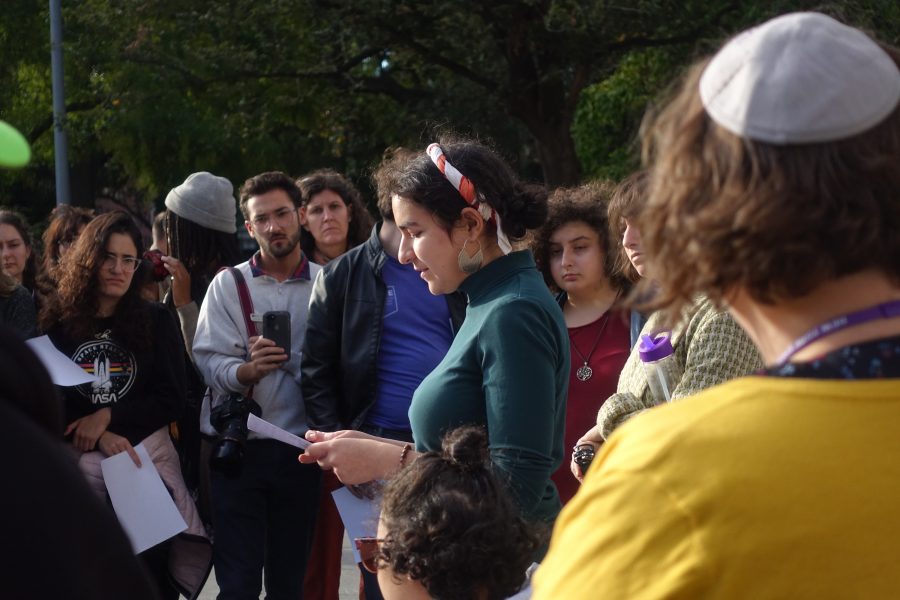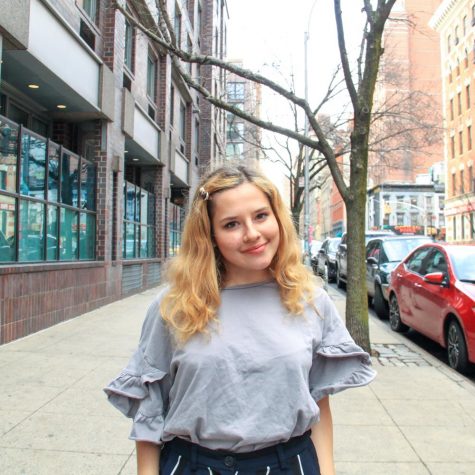Humming Jewish hymns to the strumming of guitars and beating of drums, around 50 NYU community members gathered at a vigil on Thursday to honor those affected by a recent attack on a synagogue in Eastern Germany.
The vigil was held under the Washington Square Arch and hosted by NYU’s Bronfman Center for Jewish Life, NYU Jewish Voice for Peace and NYU Global Spiritual Life. It mourned the two dead and two injured when a gunman opened fire in a synagogue in Halle, Germany.
The shooting occurred on Yom Kippur, which is considered the holiest day of the Jewish calendar. The holiday is celebrated by a 25-hour period of fasting and a full day of synagogue services.
CAS sophomore Nicole Beremovica was raised in Dusseldorf, Germany in a Latvian-Jewish family. She said shootings in Germany are incredibly rare and guns are not as easily accessible as they are in the U.S.
“For there to be a shooting in Germany — it’s a shock,” Beremovica said. “I don’t want this to become normal.”
CAS senior Michael Bearman, who is with NYU JVP, said that this attack was part of a growing trend of white supremacy across the world.
“I think this event reminds us that the enemy of the Jewish people is fascism and white supremacy,” Bearman said.
This commemoration is the third one held for victims of anti-Semitic violence in the past year, following vigils for a synagogue shooting last October in Pittsburgh and the Poway shooting in May. Some attendants of tonight’s vigil expressed that they are no longer surprised by news of synagogue attacks.
“I almost expected to turn my phone on after the holiday and to see something,” said Bronfman Jewish Education Intern Alli Moses, a master’s student at the Jewish Theological Seminary.
Bronfman Rabbi Joe Wolfson said during the vigil that until recently, he thought that violence against Jewish people was no longer a prevalent issue.
“There was a time until not that long ago when we could think of murderous anti-Semitism as something of the past […] something that was exiled to the fringes,” Wolfson said. “We’re entering into a period of history where this is part of our lives, something we can expect to happen every three to four months.”
Bronfman Rabbi Nikki DeBlosi agreed.
“It’s not shocking,” DeBlosi said. “It’s just become another aspect of life.”
Email Lisa Cochran at [email protected].
















































































































































